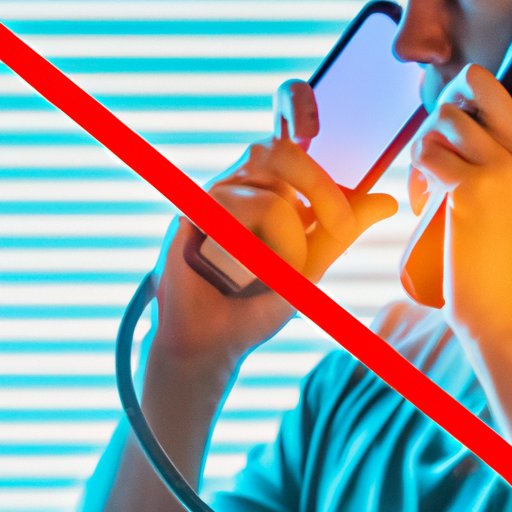How Long Does it Take to Detox from Alcohol? Understanding the Process and Stages
Alcohol addiction can be a serious issue for many individuals, and deciding to detox from alcohol is a crucial step towards recovery. However, this process can be challenging, and it’s important to understand what to expect during the detox process. In this article, we will explore how long it takes to detox from alcohol, the science behind the process, different methods of detox, and coping with withdrawal symptoms. We will also share real stories from individuals who have gone through the detoxification process, and provide tips for maintaining sobriety in the long term.
The Science of Alcohol Detoxification
Alcohol detoxification is the process by which the body eliminates alcohol from its system. When a person drinks alcohol, it is absorbed into the bloodstream and affects the central nervous system, causing feelings of relaxation and pleasure. However, alcohol is a toxic substance that the body tries to eliminate through the liver, kidneys, lungs, and skin.
The liver is primarily responsible for breaking down alcohol with the help of enzymes. As the liver works to process alcohol, it produces acetaldehyde, a toxic substance that can damage cells. The body then uses another enzyme, acetaldehyde dehydrogenase, to convert acetaldehyde into acetate, which is then broken down further and eliminated from the body. This process can take several hours to complete, depending on the amount and frequency of alcohol consumption.
Factors that Influence How Long it Takes to Detox
Several factors can influence how long it takes to detox from alcohol. These include:
- The amount and frequency of alcohol consumption – Chronic and heavy drinkers may experience a longer detox process than those who drink in moderation.
- Age and overall health – Older individuals or those with underlying health conditions may experience a longer detox process.
- Genetics – Some individuals may have variations in their genes that affect how their bodies metabolize alcohol.
- Other substances – Concurrent use of other substances, like drugs, can complicate the detox process.
The Stages of Alcohol Detoxification and their Timeline
The detox process typically occurs in three stages:
- Stage 1 – The first stage of detoxification begins within 6-12 hours of the last drink. During this stage, individuals may experience mild symptoms such as anxiety, tremors, and insomnia.
- Stage 2 – The second stage typically occurs within 12-48 hours after the last drink. Individuals may experience more severe symptoms such as hallucinations, seizures, and high blood pressure.
- Stage 3 – The third and final stage can last for up to a week and involves a gradual reduction in symptoms as the body continues to detoxify.
Different Detox Methods for Alcohol
There are several detox methods available for individuals seeking to detox from alcohol. These include:
- Medical detoxification – In this method, medical professionals monitor and manage withdrawal symptoms using medications and other therapies.
- Natural detoxification – This method involves gradually reducing alcohol intake and using natural remedies to manage withdrawal symptoms.
- Holistic detoxification – Holistic detox methods may include yoga, meditation, and acupuncture, among other things, to manage withdrawal symptoms.
Pros and Cons of Each Method
Medical detoxification is typically considered the safest and most effective method of detox. However, it can be expensive and may involve a hospital stay. Natural detoxification may be more accessible and cost-effective, but it may not be as effective for more severe cases of alcohol addiction. Holistic detoxification can provide additional benefits for overall health and well-being, but it may not always be sufficient to address the specific needs of alcohol detoxification.
Coping with Withdrawal Symptoms
During the detox process, individuals may experience a range of withdrawal symptoms. These can include:
- Headaches
- Nausea and vomiting
- Anxiety and depression
- Irritability and mood swings
- Tremors and seizures
To manage these symptoms, it is important to practice self-care and seek support from medical professionals, family, and friends. Strategies for managing withdrawal symptoms may include:
- Getting plenty of rest and staying hydrated
- Eating a nutritious, balanced diet
- Engaging in gentle exercise or relaxation techniques
- Socializing with supportive friends and family
- Joining a support group or seeking professional counseling
Benefits of Medical Supervision and Finding Support
Seeking medical supervision during the detox process can provide several benefits. Medical professionals can monitor vital signs and manage withdrawal symptoms to ensure safety and comfort throughout the process. Additionally, finding support from local support groups or online communities can provide invaluable emotional support, perspective, and practical advice.
Real Stories from Individuals Who Have Experienced Alcohol Detox
Real stories from individuals who have gone through the detox process can be a powerful source of inspiration and guidance. By sharing their experiences, these individuals can offer insight into what to expect during the detox process, as well as tips and strategies that helped them to overcome challenges along the way.
Long-Term Strategies for Maintaining Sobriety
While detoxification is an essential step towards recovery, maintaining sobriety over the long term is critical for sustained success. This may involve developing effective strategies for managing stress, avoiding triggers, and seeking support when needed. Some effective long-term strategies for maintaining sobriety may include:
- Joining a support group
- Working with a therapist or counselor
- Finding healthy outlets for stress and emotions
- Building a support network of friends and family
- Healthy habits and self-care practices
Conclusion
Detoxing from alcohol can be a challenging but essential step towards recovery. By understanding the science of detoxification, different methods of detox, coping with withdrawal symptoms, seeking medical supervision, and finding support, individuals can increase their chances of success. Additionally, real stories from individuals who have gone through the process can provide invaluable guidance and encouragement. By adopting effective long-term strategies for maintaining sobriety, individuals can set themselves up for sustained success in recovery.
